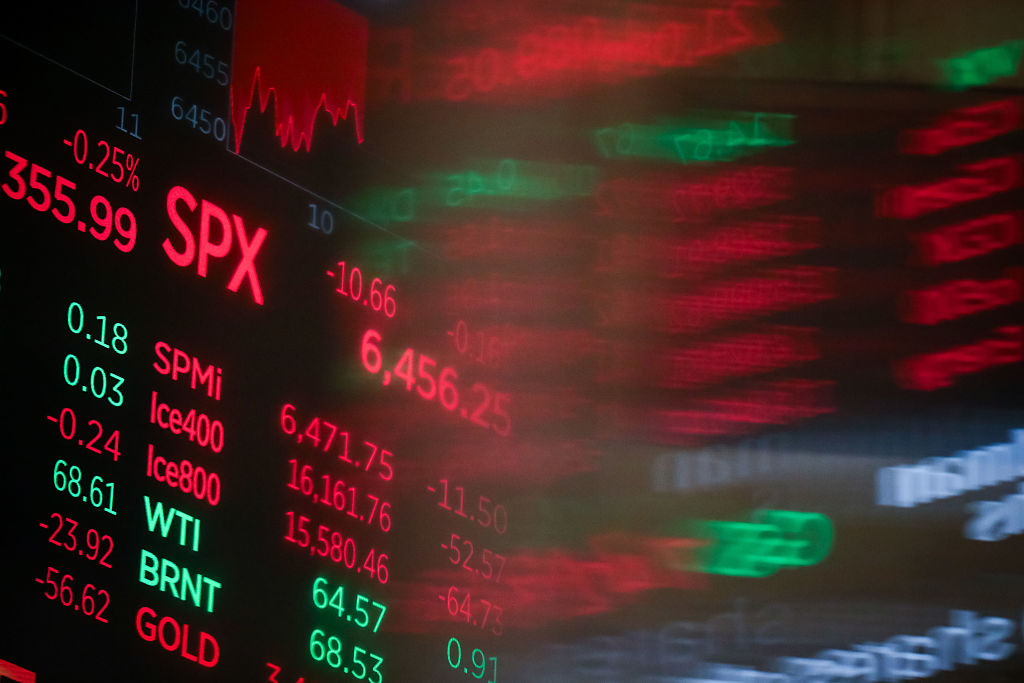Profit and prosper with the best of Kiplinger's advice on investing, taxes, retirement, personal finance and much more. Delivered daily. Enter your email in the box and click Sign Me Up.
You are now subscribed
Your newsletter sign-up was successful
Want to add more newsletters?

Delivered daily
Kiplinger Today
Profit and prosper with the best of Kiplinger's advice on investing, taxes, retirement, personal finance and much more delivered daily. Smart money moves start here.

Sent five days a week
Kiplinger A Step Ahead
Get practical help to make better financial decisions in your everyday life, from spending to savings on top deals.

Delivered daily
Kiplinger Closing Bell
Get today's biggest financial and investing headlines delivered to your inbox every day the U.S. stock market is open.

Sent twice a week
Kiplinger Adviser Intel
Financial pros across the country share best practices and fresh tactics to preserve and grow your wealth.

Delivered weekly
Kiplinger Tax Tips
Trim your federal and state tax bills with practical tax-planning and tax-cutting strategies.

Sent twice a week
Kiplinger Retirement Tips
Your twice-a-week guide to planning and enjoying a financially secure and richly rewarding retirement

Sent bimonthly.
Kiplinger Adviser Angle
Insights for advisers, wealth managers and other financial professionals.

Sent twice a week
Kiplinger Investing Weekly
Your twice-a-week roundup of promising stocks, funds, companies and industries you should consider, ones you should avoid, and why.

Sent weekly for six weeks
Kiplinger Invest for Retirement
Your step-by-step six-part series on how to invest for retirement, from devising a successful strategy to exactly which investments to choose.
UnitedHealth Group cut it close. One of the nation's largest health insurers waited to file its first-quarter report with the Securities and Exchange Commission until the evening of May 10, the last possible day it could without asking for more time. In the filing, the Minnetonka, Minn., company warns that it may have to restate earnings for the past three years because of a "significant deficiency" in the way it administrated stock-option grants. The warning comes nearly four years after the Sarbanes-Oxley Act mandated tighter controls on accounting and corporate governance.
If UnitedHealth has to pay taxes and interest on stock options it previously expensed, it will have to restate earnings. Based on its own investigation, the company estimates that this could reduce reported earnings by as much as $68 million in 2003, $110 million in 2004 and $215 million in 2005. The restatement estimates represent 2.3% to 4.5% of earnings depending on the year in question.
UnitedHealth, which says the SEC has launched an "informal" investigation into its stock-option grants, predicts that any accounting adjustments will not affect future earnings. The controversy "will likely linger until at least late June, when we expect the board investigation to wrap up -- possibly longer if the informal SEC inquiry turns into a formal inquiry," says analyst Edmund Kroll, of SG Cowen analyst, who is neutral on the stock.
From just $107.88 $24.99 for Kiplinger Personal Finance
Become a smarter, better informed investor. Subscribe from just $107.88 $24.99, plus get up to 4 Special Issues

Sign up for Kiplinger’s Free Newsletters
Profit and prosper with the best of expert advice on investing, taxes, retirement, personal finance and more - straight to your e-mail.
Profit and prosper with the best of expert advice - straight to your e-mail.
The uncertainty about stock-option practices and the SEC probe have battered UnitedHealth shares. Since mid March, when The Wall Street Journal reported that company executives had benefited from stock options given on extraordinarily favorable terms, the stock (symbol UNH) has dropped 24%, to $46. According to the Journal, each of 12 grants received by chief executive William McGuire between 1994 and 2002 were dated just before a large rise in the company's share price. McGuire has realized gains of nearly $200 million in the past four years from his options. He has a whopping $1.8 billion in unrealized gains from options he has yet to exercise. The company changed its stock-option compensation practices May 1.
Given the size of the restatements, UnitedHealth's problems are "overblown," says J. Paul Newsome of A.G. Edwards, who rates the stock a buy. "Our experience is that as long as the earnings impact is modest, the stock will largely recover over time," he says. However, Newsome worries that the scandal might force out McGuire, who has led the company for 15 years and presided over a steady rise in share price until recently. At $46, the stock trades at 16 times the $2.93 a share analysts estimate the company will earn this year, according to Thomson First Call. Newsome notes that it's trading at 14 times estimated 2007 profits, which is low compared with a price-earnings-ratio range of 15 to 26 over the past ten years. He thinks the stock is worth $60.
UnitedHealth shares may seem like a bargain to some, but they probably won't rise significantly until the company puts its stock-option problem behind it. And that could take a while.
--Thomas M. Anderson
Profit and prosper with the best of Kiplinger's advice on investing, taxes, retirement, personal finance and much more. Delivered daily. Enter your email in the box and click Sign Me Up.
-
 5 Vince Lombardi Quotes Retirees Should Live By
5 Vince Lombardi Quotes Retirees Should Live ByThe iconic football coach's philosophy can help retirees win at the game of life.
-
 The $200,000 Olympic 'Pension' is a Retirement Game-Changer for Team USA
The $200,000 Olympic 'Pension' is a Retirement Game-Changer for Team USAThe donation by financier Ross Stevens is meant to be a "retirement program" for Team USA Olympic and Paralympic athletes.
-
 10 Cheapest Places to Live in Colorado
10 Cheapest Places to Live in ColoradoProperty Tax Looking for a cozy cabin near the slopes? These Colorado counties combine reasonable house prices with the state's lowest property tax bills.
-
 Dow Leads in Mixed Session on Amgen Earnings: Stock Market Today
Dow Leads in Mixed Session on Amgen Earnings: Stock Market TodayThe rest of Wall Street struggled as Advanced Micro Devices earnings caused a chip-stock sell-off.
-
 If You'd Put $1,000 Into AMD Stock 20 Years Ago, Here's What You'd Have Today
If You'd Put $1,000 Into AMD Stock 20 Years Ago, Here's What You'd Have TodayAdvanced Micro Devices stock is soaring thanks to AI, but as a buy-and-hold bet, it's been a market laggard.
-
 S&P 500 Tops 7,000, Fed Pauses Rate Cuts: Stock Market Today
S&P 500 Tops 7,000, Fed Pauses Rate Cuts: Stock Market TodayInvestors, traders and speculators will probably have to wait until after Jerome Powell steps down for the next Fed rate cut.
-
 S&P 500 Hits New High Before Big Tech Earnings, Fed: Stock Market Today
S&P 500 Hits New High Before Big Tech Earnings, Fed: Stock Market TodayThe tech-heavy Nasdaq also shone in Tuesday's session, while UnitedHealth dragged on the blue-chip Dow Jones Industrial Average.
-
 If You'd Put $1,000 Into UPS Stock 20 Years Ago, Here's What You'd Have Today
If You'd Put $1,000 Into UPS Stock 20 Years Ago, Here's What You'd Have TodayUnited Parcel Service stock has been a massive long-term laggard.
-
 How the Stock Market Performed in the First Year of Trump's Second Term
How the Stock Market Performed in the First Year of Trump's Second TermSix months after President Donald Trump's inauguration, take a look at how the stock market has performed.
-
 Dow Hits New High Then Falls 466 Points: Stock Market Today
Dow Hits New High Then Falls 466 Points: Stock Market TodayThe Nasdaq Composite, with a little help from tech's friends, rises to within 300 points of its own new all-time high.
-
 Stocks Struggle for Gains to Start 2026: Stock Market Today
Stocks Struggle for Gains to Start 2026: Stock Market TodayIt's not quite the end of the world as we know it, but Warren Buffett is no longer the CEO of Berkshire Hathaway.